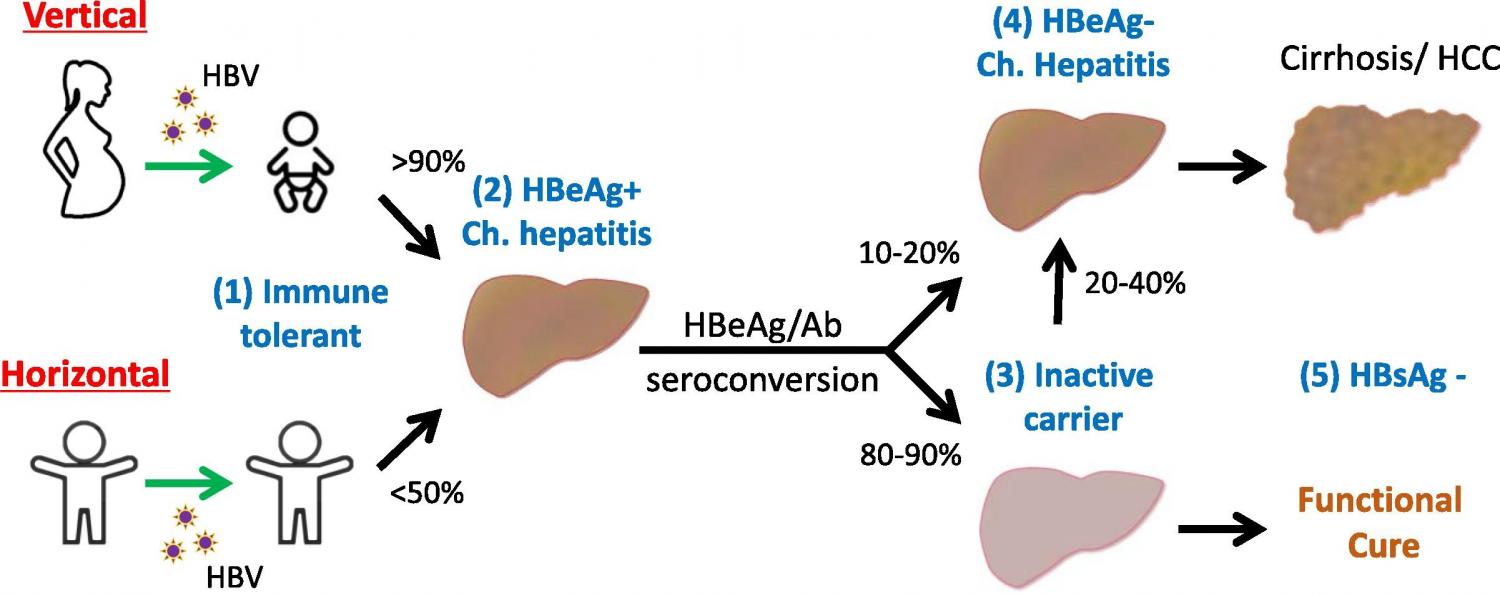
The World Health Organization recommends the implementation of universal hepatitis B (HB) vaccination, and global coverage for this vaccine reached 84% in 2015. In Japan, the policy aimed at preventing mother-to-child transmission of HB virus (HBV) initially commenced as a specific vaccination program for infants born to mothers who were positive for HB surface antigen. In 2016, universal HB vaccination was implemented in this country to cover unvaccinated individuals at risk of horizontal HBV transmission. Although HB vaccination has been shown to be highly efficacious and safe, the issues of vaccine non-responders and of the loss of antibodies directed against HB surface antigen (anti-HBs) in HB vaccine recipients remain. To gain better insight into these problems, we previously performed an immunological analysis on adult vaccine recipients after they received an initial HB vaccination. We found that the course of successful HB vaccination is composed of the following distinct phases: 1) acquisition of anti-HBs antibody, 2) attainment of high anti-HBs antibody titers, and 3) maintenance of acquired anti-HBs antibody levels. In this review, we describe the significance of HB vaccination and suggest a potential means of improving the impact of HB vaccination based on our immunological analysis.
